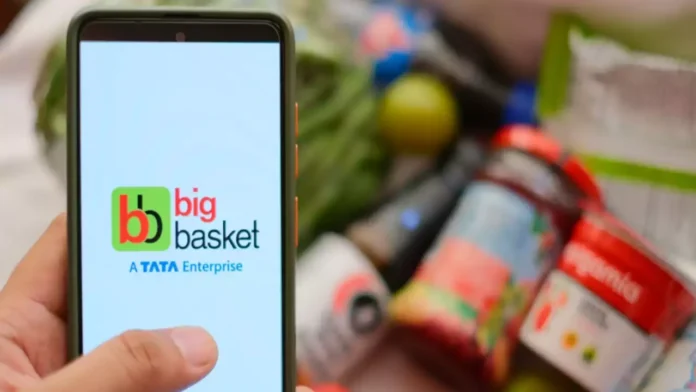BigBasket, a TATA Enterprise, has just launched its 2023 Sustainability Report, spotlighting notable advancements in six key areas of impact: electric delivery vehicles, solar power generation, support for organic farmers, waste management, inclusion and diversity, and corporate social responsibility.
Electric Delivery Vehicles: Driving Towards a Greener Future
BigBasket’s sustainability endeavors led to the prevention of 10,429 tonnes of carbon emissions, facilitated by 6,491 electric delivery vehicles. This reduction is comparable to the carbon absorption potential of roughly 4.74 lakh fully matured trees. Beginning with a pilot program of 10 electric vans in Noida back in 2016, the company’s electric vehicle fleet now constitutes 27% of its delivery operations, featuring 5,731 electric bikes and 760 electric autos and vans.
Solar Power Generation: Harnessing Renewable Energy
Solar power generation was also instrumental, as BigBasket generated 5,268 MWh of solar energy in 2023. The company strategically installed solar panels atop 28 warehouses spanning 13 cities, resulting in a reduction of 4,214 tonnes of greenhouse gas emissions.
Continue Exploring: BigBasket aims to turn profitable in 8 months; eyeing IPO in 2025
Support for Organic Farmers: Nurturing Sustainable Agriculture
BigBasket showcased its unwavering dedication to sustainable agriculture by providing support to over 10,000 organic farmers. Through field geotagging, agricultural intelligence, and educational sessions on modern farming techniques and government initiatives, the company aims to foster sustainable farming practices. This initiative not only preserves soil fertility but also offers healthier food choices to consumers.
Commenting on this, Hari Menon, CEO and Co-Founder of bigbasket, expressed, “At bigbasket, our efforts extend beyond merely reducing carbon footprints or harnessing solar energy; we are reshaping the concept of environmental responsibility in today’s era. Our dedication transcends statistics; it’s about igniting transformation, fostering inclusivity, and fostering a heritage of mindful consumption. With each customer, we aren’t just delivering groceries; we’re shaping a future we can collectively cherish.”
Waste Management: Reducing Environmental Footprint
In the realm of waste management, bigbasket reached a significant milestone by recycling over 100 tonnes of waste each month. Utilizing specially designed metal crates to reduce reliance on corrugated cardboard and repurposing damaged fruits and vegetables as compost or animal feed, the company demonstrates its commitment to sustainability. Furthermore, bigbasket has shifted entirely to digital invoicing, conserving 220 tonnes of virgin paper annually. To further reduce environmental impact, delicate produce is packaged in cornstarch materials, which biodegrade more rapidly than traditional plastics.
Diversity and Inclusion: Fostering Equality and Opportunity
Bigbasket’s diversity, equity, and inclusion initiative, Aarambh, persistently advocates for equal opportunities, resulting in the inclusion of over 5,000 women (constituting 16.5% of the workforce) and 600+ individuals with disabilities. Furthermore, the company’s sustainability endeavors are reinforced by the bigbasket Foundation. This foundation facilitates customer engagement and supports diverse social causes by connecting them to verified NGOs through the Donations tab within the bigbasket app.
Continue Exploring: No rush to expand categories, grocery remains primary focus: BigBasket CEO Hari Menon





